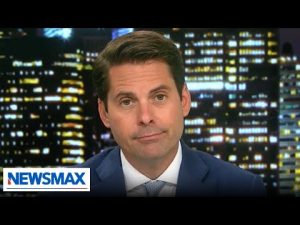In a world where the government watchdogs are supposed to be the champions of the taxpayer, the news that a staggering $36 million in fraudulent loans went discovered in a recent investigation is a big deal. Viewers were likely not surprised to hear Small Business Administrator Kelly Loeffler express her dismay at the Biden administration’s tendency to sweep such incidents under the rug. To add spice to the saga, it’s not just about a few fraudulent cases. We’re talking about a whole saga of fraud, waste, and abuse that even the Department of Oversight on Government Expenditures, or D.O.G.E., couldn’t bark away.
Kelly Loeffler made it crystal clear that her mission is to hold offenders accountable and to trim the fat in government spending. With billions identified in wasteful contracts, she proudly announced that the quest to make the D.O.G.E. cuts permanent is underway. Her goal? A giant “big, beautiful” bill slashing $1.6 trillion in wasteful, mandatory government spending. And surprise, surprise, former President Trump wholeheartedly supports these measures, making it a tag-team effort to save taxpayers’ dollars from further misuse.
Administrators at the helm of small business recovery have been visiting bustling main streets and manufacturing plants in places like Texas. The concerns of the local entrepreneurs are a direct hit to the heart of American business. Tariffs are seen as troublesome hurdles that make importing goods nearly as difficult as finding a needle in a haystack. The good news, however, is that with Trump as a vocal advocate and Loeffler and her team on the ground, the hope is to breathe new life into American manufacturing. Lower taxes, deregulatory efforts, and skilled workforces are the magic potions that small business advocates believe can resurrect the American dream.
While small businesses may have secured a hero in the oval office, other realms tell a tale of their own. Turning attention towards sports, the WNBA recently found itself mired in controversy over allegations of racism among fans. But, as it turns out, the investigation revealed no evidence to support these claims. Loeffler, having had a strong past connection with the WNBA, points out the league’s unfortunate knack for stumbling over its own shoelaces, particularly when the spotlight could be on the sport’s star prowess instead.
In a classic example of how ideology continues to muddy the waters of personal vocations, the WNBA’s fixation on social justice agendas instead of athletic excellence seems more like a rerun of 2020’s dismal results in the popularity sector. As supporters of fair play and focus on the ballgame echo Loeffler’s sentiments, the call is for sports organizations to stick to sports. When America’s small businesses feel the wind in their sails and sports fans aren’t bogged down by unnecessary drama, everyone can finally shift focus back to what truly matters: strong businesses and splendid games.







